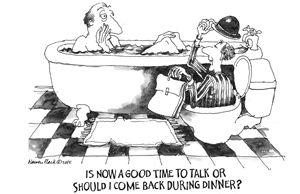Reading time: Less than 3 minutes
Frank Sinatra began his musical career as a boy singer with Harry James and Tommy Dorsey. But did you know he ended it as a writing inspiration coach? Read on…
I’m a longtime fan of Frank Sinatra. Almost incredibly, so are my 21-year-old triplets. One of their babysitters used to play them Sinatra’s music and, as preschoolers, they’d walk down the street singing such songs as Fly Me to the Moon or You Make Me Feel So Young. It was adorable and often created a bit of sensation. (Especially when my kids wore their sunglasses, as they liked to.)
I was thinking about Frank, recently, and it occurred to me that some of his song titles offer great advice for writers. No, I’m not talking about Wishing Will Make It So. (In fact, wishing — without making a plan about how to accomplish it — will usually get you a big fat zero in the writing department.)
But most of Frank’s songs are far more on the money than that. Here’s a list of his titles you might want to think about before you next sit down to write.
Consider these words from songwriter Johnny Mercer:
You’ve got to accentuate the positive
Eliminate the negative
And latch on to the affirmative
Don’t mess with Mister In-Between
You’ve got to spread joy up to the maximum
Bring gloom down to the minimum
Have faith or pandemonium’s
Liable to walk upon the scene
I’ve worked with many people who fear writing. https://www.publicationcoach.com/fear-of-writing/ The printed word holds nothing but terror for them. They worry about what their boss or client is going to think. Worst of all, they worry about what they’re going to think of themselves. Something negative, they assume. So here’s my question: how can you write if your hands are clutched in a death-grip?
All the evidence shows that if you’re happy and positive, you’re more likely to succeed. People who are optimistic, have great social support and see stress as a challenge rather than a threat do better at everything — including writing. Corporate trainer Sean Achor https://www.publicationcoach.com/happy-writer/ argues this point quite convincingly.
Anything Goes
As Cole Porter put it:
In olden days a glimpse of stocking
Was looked on as something shocking,
But now, God knows,
Anything Goes.
Good authors too who once knew better words,
Now only use four letter words
Writing prose, Anything Goes.
Smart writers know that their first job is to write a crappy first draft. https://www.publicationcoach.com/crappy-first-draft/ It matters not one iota what goes into that draft because, guess what? No one other than the writer should see it! The benefit of the crappy first draft is that it allows you to write quickly, holding your critical faculties in abeyance. Then, when you have your draft, you can edit. You can even be harsh and demanding, if you like. But when you’re writing that first draft, anything goes.
Blues in the Night / In the Wee Small Hours of the Morning
Lyricist Bob Hilliard wrote:
In the wee small hours of the morning,
While the whole wide world is fast asleep,
You lie awake and think about your writing*
And never, ever think of counting sheep.
*Confession: the phrase “your writing” is my own addition. (Original lyric was: “the girl.”)
Most writers naturally gravitate to writing first thing in the morning or late at night. I was born a night owl but turned into a morning lark https://www.publicationcoach.com/best-time-to-write/ (without really trying to) about 10 years ago. I’ve found that 6 to 7 am is now my most productive time for writing and I schedule my most important work for mornings. You may be different but if you’re not a morning lark, I bet you’re a night owl. We all tend to write better when no one else can disturb us.
I Guess I’ll Have to Change My Plan
Howard Dietz was thinking about love when he said…
Before I knew where I was at
I found myself upon the shelf and that was that
I tried to reach the moon but when I got there
All that I could get was the air
But writers could be forgiven for thinking he was telling their story. How many times have you written yourself into a corner? You start on a piece, thinking you have a good through-line and then, bam, you don’t know what to say next. You have some key facts or quotes you need to include and nowhere to put them. You’re out on a limb, grasping for air. (In the song, Frank loses his girl. But if you’re a determined writer, you needn’t lose the story. You can just change your plan!)
My Way
And the song that’s most inexorably associated with Sinatra? It’s a cheesy Paul Anka classic. Here are a few lines to refresh your memory:
Yes, there were times, I’m sure you knew
When I bit off more than I could chew.
But through it all, when there was doubt,
I ate it up and spit it out.
I faced it all and I stood tall;
And did it my way.
I give lots of general advice to writers but I recognize that there’s no one-size-fits-all system. We’re all individuals and we all need to sort out our own ways of getting words onto the page and making them better.
Keep your head up. Keep trying and eventually you’ll figure out your own way to achieve success.

Have any of Frank’s song titles helped you? We can all learn from each other so, please, share your thoughts with my readers and me in the “comments” section of my blog. And congratulations to Judy Warmanen, the winner of this month’s book prize, Swallowing the Sea by Lee Upton for her Aug. 4 comment on my blog. Anyone who comments on today’s post (or any others) by Sept. 30/15 will be put in a draw for a copy of Wildmind: Living the Writer’s Life, by Natalie Goldberg. To enter, please go to my blog (and scroll to the end for the “comments” section.)

